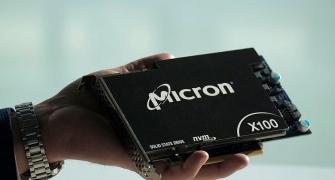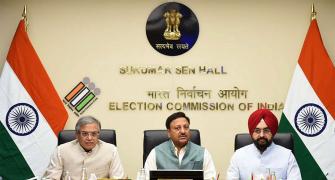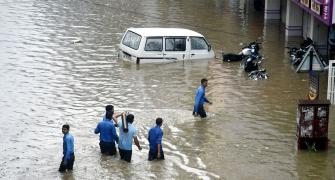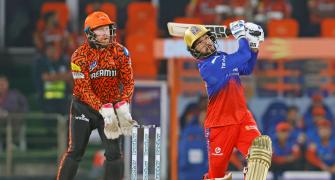Close to completing six decades in healthcare delivery, the Manipal Healthcare Group had a modest beginning with the Manipal Hospital in Bangalore. Today, with a total of 7,000 beds across all its hospitals, it is easily one of the country's largest healthcare networks.
Not far behind is another southern healthcare bigwig, one that has also made inroads into the north to become Asia's largest healthcare group - Apollo Hospitals. Then there is Wockhardt Hospitals, which started in Bangalore, and is now debuting in north India with a hospital in Delhi.
Clearly, the south is the birthplace of private hospital chains in India. For hospital chains in the north, however, the journey has only just picked pace.
Fortis Healthcare and Max Healthcare are yet to register cash break-even. "But that's because in the north, organised private healthcare is a very recent phenomenon compared to the south where traditionally there has been organised, institutionalised healthcare delivery," says Vishal Bali, CEO, Wockhardt Hospitals. "For every AIIMS, there are three-four medical institutions in the south."
In spite of investing close to Rs 250 crore (Rs 2.5 billion) in the last 18 months, MHG's y-o-y growth is almost 20 per cent, with its top-line growing at an average rate of 30 per cent.
R Basil, CEO, Manipal Health Systems, says, "We are employing numerous strategies for growth and expansion and a major focus is on research and development of therapies."
This is another area where the south continues to have an edge. While the private sector in the north has still not made it big in R&D, in southern hospitals like Manipal, L V Prasad and Lifeline, breakthroughs in stem cell therapy are common.
Adds Basil, "We have a waiting-list of 300 patients for our stem cell therapy and large numbers are coming from the US."
However, Mukesh Shivdasani of Max Healthcare believes, "The gap is closing between the north and the south. The hospitals that have come up in the north in recent times, at a cost of more than Rs 500 crore (Rs 5 billion), have made larger investments than their southern counterparts."
But investments to this tune tend to translate into higher delivery costs for consumers, making the south a cheaper option, especially for patients from overseas.
Max, which is now aggressively pursuing the US market, got only 350 American patients till last year; but it is targetting 700 this year. Fortis, which focused on medical tourism from the beginning, claims to have received almost 4,000 patients last year.
For Apollo, its hospital in Chennai and Delhi are almost at par now, with both receiving 12,000 patients each. "The revenues from these two hospitals are also similar," says Anil Maini, president, corporate development. "But it's true that a slight difference comes in also because of cheaper manpower in the south."
Moving to the north, though both Max and Fortis are yet to break even, their business is growing at a phenomenal rate. Had it not been for the Escorts acquisition, Fortis would have reported cash break-even in the last financial year - a modest time-period for the sector. From a turnover of Rs 300 crore (Rs 3 billion) in '05-06, the company saw its turnover jump 122 per cent in 06-07 to Rs 525 crore (Rs 5.25 billion).
Says Pawanpreet Singh, corporate controller, Fortis Healthcare, "In terms of profit, we have started improving on a standalone basis but in percentage terms, the consolidated growth is still not great."
The north's slow pace has been largely attributed to its private practice-oriented healthcare delivery at a time when the south was investing in specialised hospitals.
Says S Aravind, administrator, Aravind Eye Hospital and Institute, Madurai, "It's true that the south is currently ahead of the north in terms of healthcare delivery and R&D, but all that is changing now with the coming of private players in the north."
The changes are clearly visible with more players like Apollo Tyres-promoted Artemis and Wockhardt also entering the north and Fortis making inroads into the south with a green field project in Navi Mumbai.
So, while the south may have been the pioneer, the north seems to be taking forward private healthcare in style. As Shivdasani asserts," We have changed the method of healthcare delivery with our high standards and non-medical services. I am sure that investment in healthcare will grow even further and we will fill the gap in the next five years."
Health network
- Manipal Hospitals is present in 11 cities in the south; hospitals in Delhi and Kolkata are on the cards
- Fortis Healthcare has 12 hospitals, all in the north. Work has begun on a hospital in Navi Mumbai, and plans are afoot to go further south this year
- Apollo Hospitals is present in three southern cities, as also Delhi, Ludhiana, Indore, Ranchi, Bilaspur, Kolkata and Ahmedabad
- Wockhardt is present in Kolkata and Bangalore, with one hospital planned in Delhi
- Max Hospitals has eight hospitals in the north (no greenfield hospitals are planned in the south)








